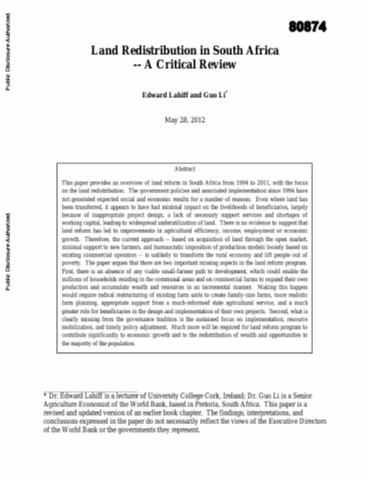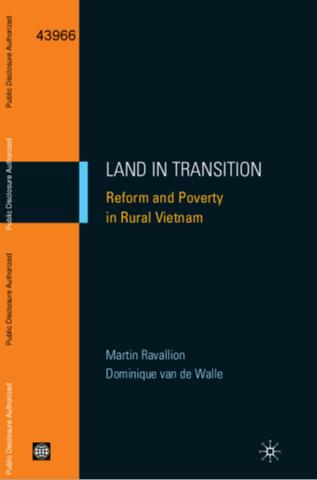Land Redistribution in South Africa
This paper provides an overview of land reform in South Africa from 1994 to 2011, with the focus on the land redistribution. The government policies and associated implementation since 1994 have not generated expected social and economic results for a number of reasons. Even where land has been transferred, it appears to have had minimal impact on the livelihoods of beneficiaries, largely because of inappropriate project design, a lack of necessary support services and shortages of working capital, leading to widespread underutilization of land.








